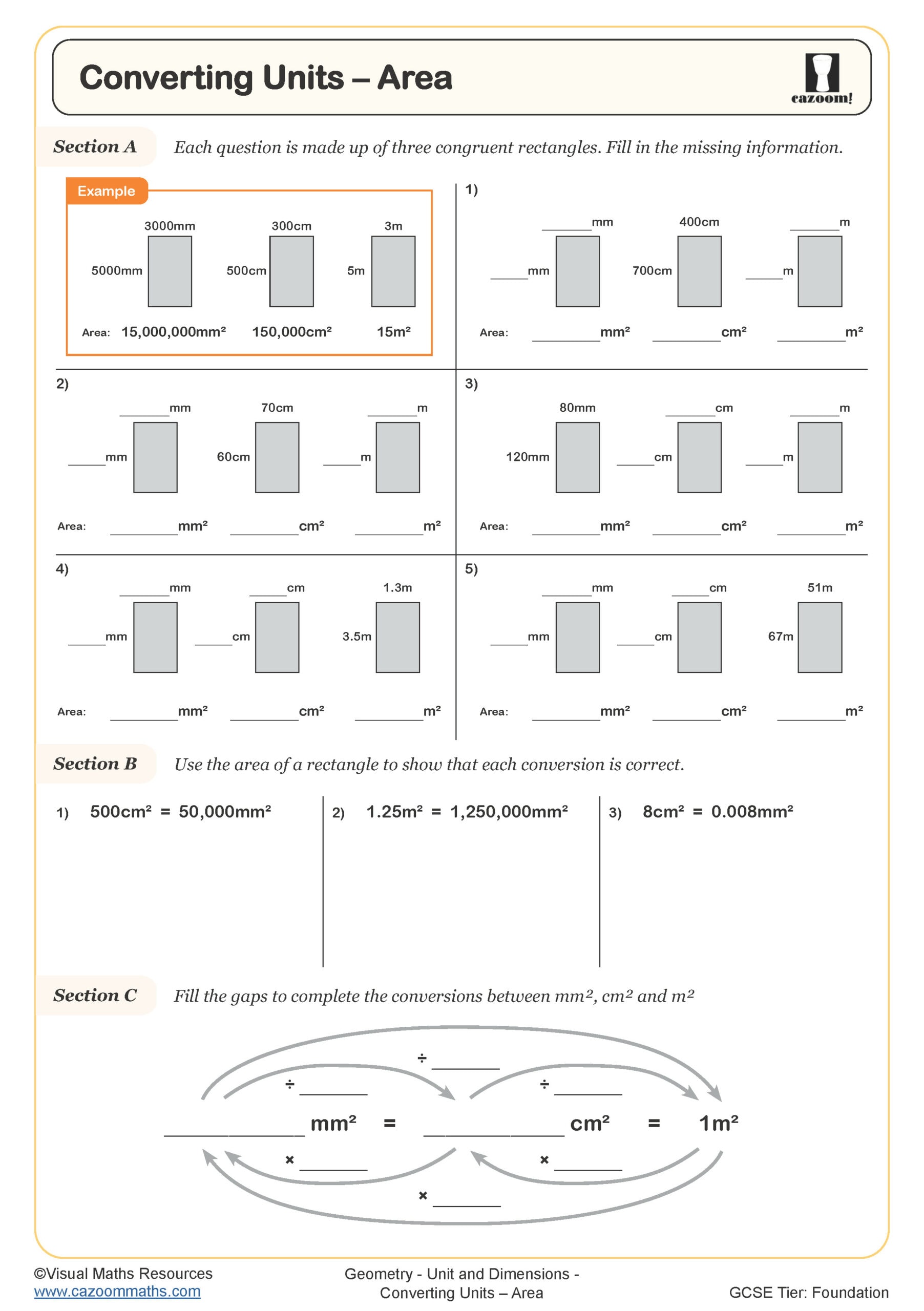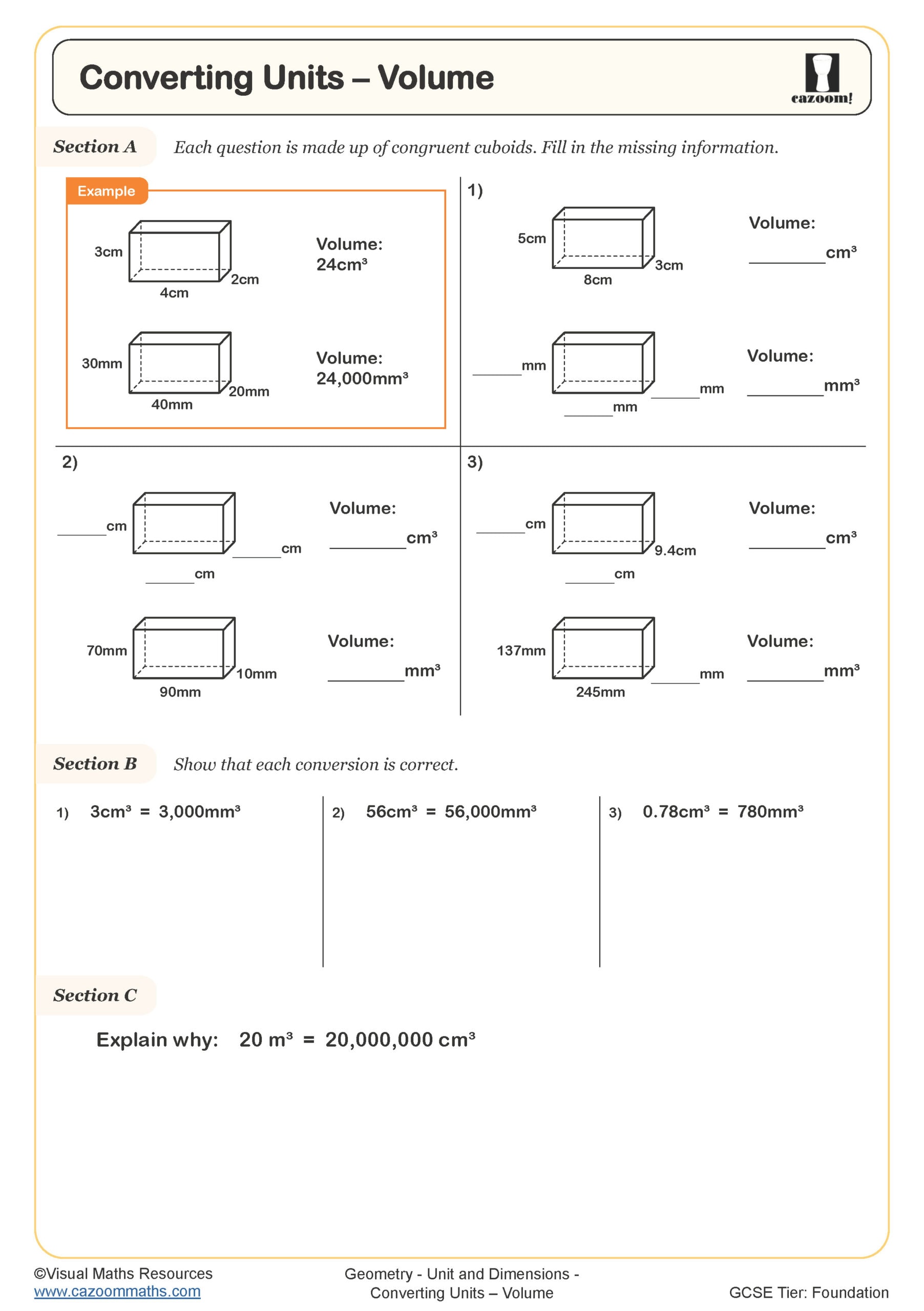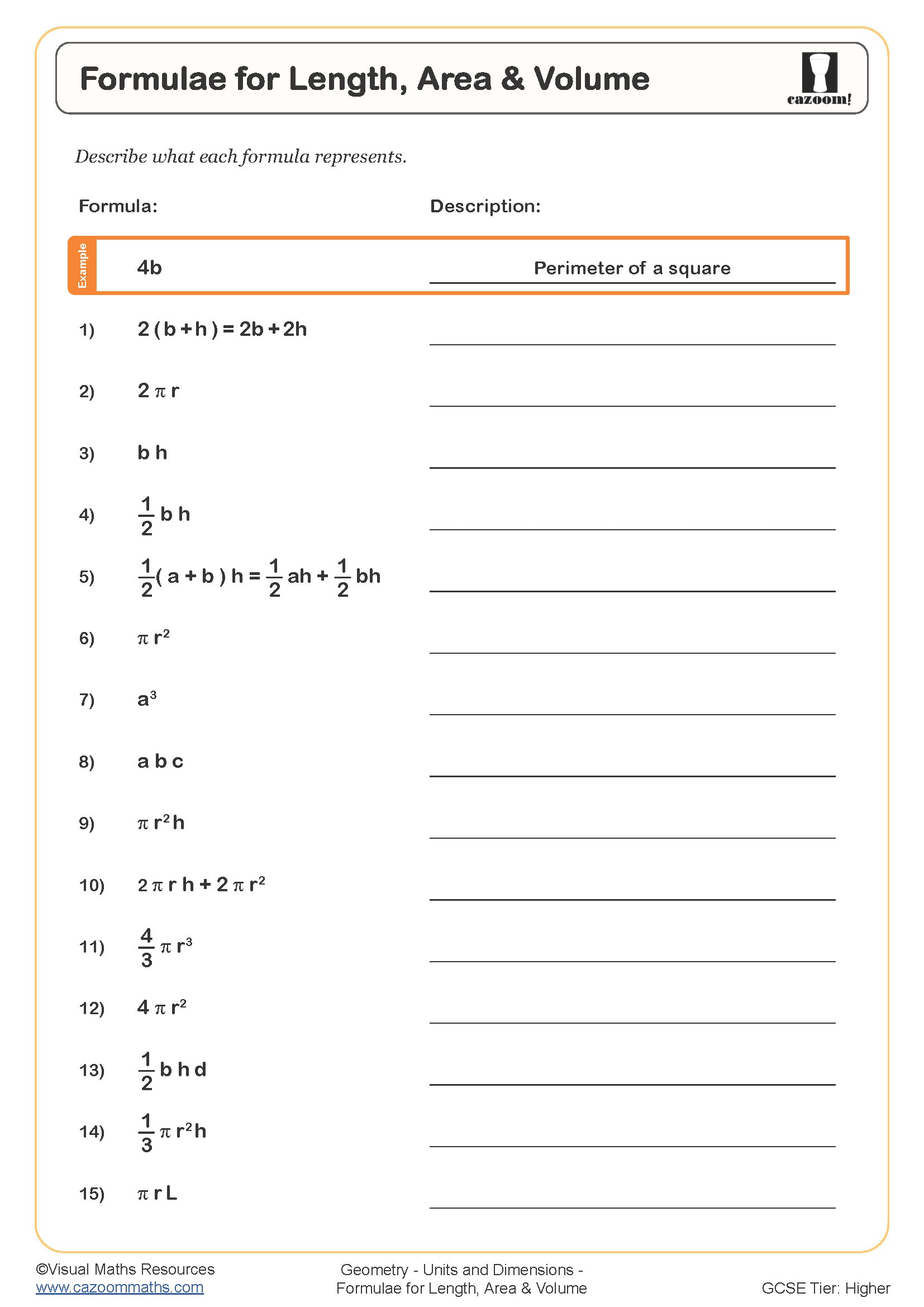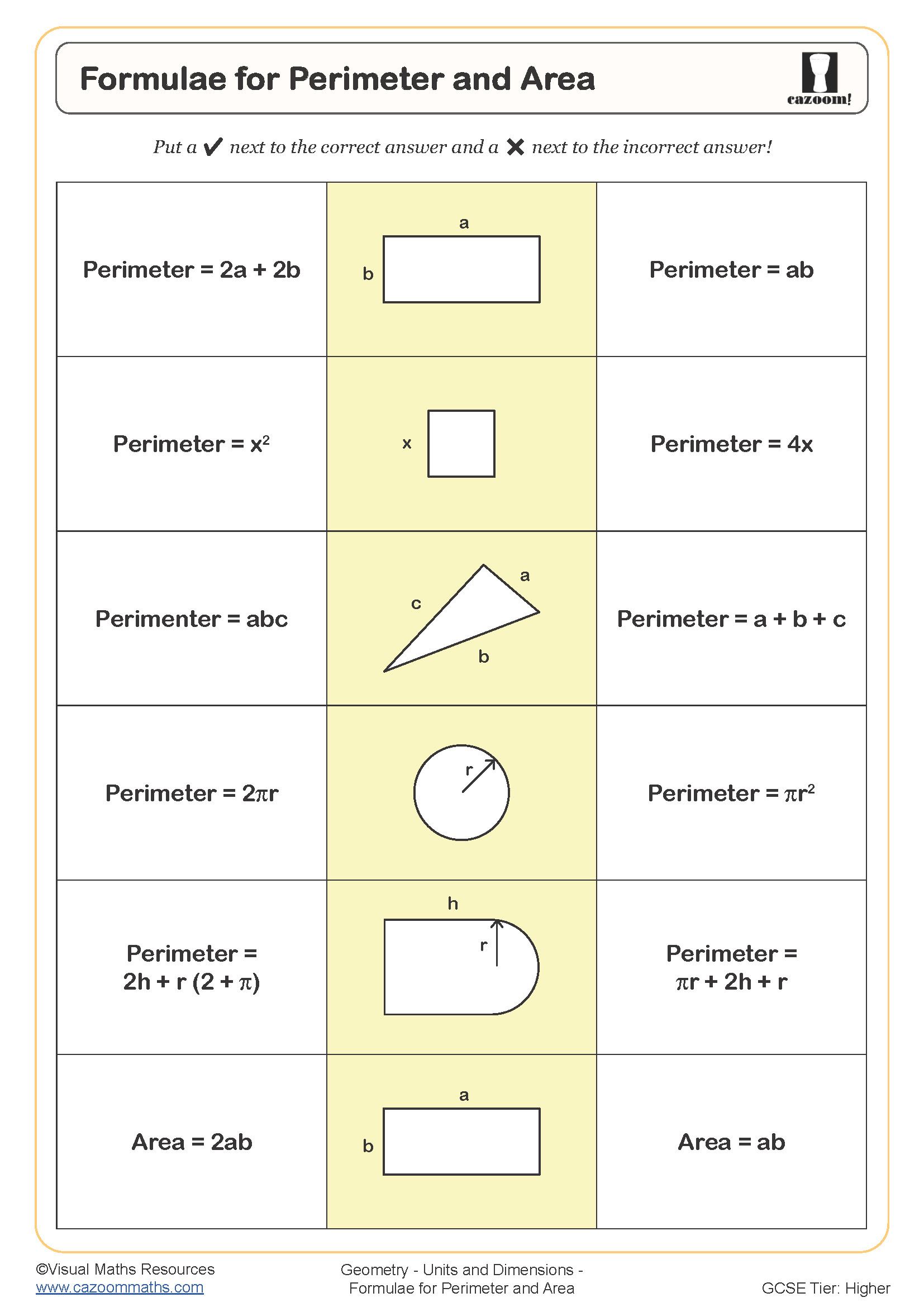Year 10 Units and Dimensions Worksheets
All worksheets are created by the team of experienced teachers at Cazoom Maths.
Year 10 Units and Dimensions Worksheets PDF Downloads with Step-by-Step Solutions
Finding quality units and dimensions resources that actually engage Year 10 students isn't easy (we've been there!). These worksheets tackle everything from basic dimensional analysis to complex unit conversions with detailed solutions that show the complete thinking process. Students get proper scaffolding through worked examples that build real confidence with physics dimensions.
What Essential Skills Are Covered in These Units and Dimensions Worksheets?
We've packed quite a lot into these worksheets! Starting with fundamental concepts like base units and derived units, students progress through dimensional analysis, unit conversions, and error calculations. The step-by-step approach is surprisingly popular with students because they can actually see how each method connects. Perfect for building that solid foundation they'll need for GCSE physics.
Why Year 10 Students Need Targeted Units and Measurements Practice Worksheets
Here's what we've noticed after years of teaching: students who master units and dimensions early perform significantly better in physics overall. Regular practice with structured worksheets creates that automatic recall they need for exams. These materials give students the confidence to tackle complex problems independently.
Key benefits for your classroom:
• Builds essential dimensional analysis skills for GCSE Maths success
• Develops logical problem-solving approaches that students can apply anywhere
• Reinforces measurement accuracy and significant figures understanding
• Prepares students for advanced physics calculations with confidence
• Perfect for homework, revision sessions, or cover lessons
Real-World Applications Where Students Actually Use Units and Dimensions Skills
Students always ask, "When will I ever use this?" - and honestly, the answer surprises them! Units and dimensions form the backbone of engineering, medicine, and scientific research. It's actually quite satisfying when they realise how these skills connect across subjects and appear in their daily lives.
Practical applications students encounter:
• Engineering design calculations for bridges, buildings, and machines
• Medical dosage calculations and equipment calibration in healthcare
• Environmental monitoring and pollution measurement systems
• Sports science analysis for performance and training optimisation
• Economics and business forecasting using dimensional analysis
• Technology development from smartphones to renewable energy systems



